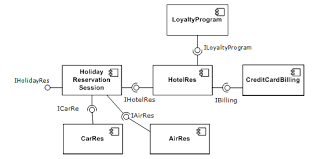The Role of an Application Developer in Today’s Digital World
In the fast-paced and ever-evolving landscape of technology, application developers play a crucial role in creating the software that powers our digital world. An application developer is a skilled professional who designs, develops, tests, and maintains applications for various platforms such as mobile devices, desktops, and the web.
One of the key responsibilities of an application developer is to understand the needs of end-users and translate those requirements into functional and user-friendly applications. They work closely with stakeholders to gather feedback, iterate on designs, and ensure that the final product meets or exceeds expectations.
Application developers are proficient in programming languages such as Java, C++, Python, or JavaScript, depending on the platform they are developing for. They leverage their coding skills to build robust and scalable applications that can handle complex tasks efficiently.
Moreover, application developers stay up-to-date with the latest trends and technologies in the industry to continuously improve their skills and deliver cutting-edge solutions. They often collaborate with other team members, including designers, testers, and project managers, to ensure that projects are completed successfully and on time.
In conclusion, application developers are instrumental in driving innovation and digital transformation across industries. Their expertise in software development enables businesses to enhance their operations, engage customers effectively, and stay competitive in today’s digital economy.
Understanding Application Developers: Roles, Skills, and Industry Insights
- What is an application developer?
- What programming languages do application developers use?
- How does an application developer differ from a software engineer?
- What are the key skills required to become an application developer?
- What industries typically hire application developers?
What is an application developer?
An application developer is a skilled professional responsible for designing, developing, testing, and maintaining software applications for various platforms such as mobile devices, desktops, and the web. They play a critical role in translating end-users’ needs into functional and user-friendly applications by leveraging their expertise in programming languages like Java, C++, Python, or JavaScript. Application developers collaborate with stakeholders to gather requirements, iterate on designs, and ensure that the final product meets or exceeds expectations. Their ability to stay current with industry trends and technologies enables them to deliver innovative solutions that drive digital transformation across industries.
What programming languages do application developers use?
Application developers use a variety of programming languages depending on the platform and requirements of the applications they are developing. Some common programming languages used by application developers include Java, C++, Python, JavaScript, Swift, and Kotlin. Java is widely used for building Android applications, while Swift is commonly used for iOS app development. C++ and Python are versatile languages that can be applied to a wide range of projects. JavaScript is often used for web development, while Kotlin has gained popularity for Android app development due to its modern features and seamless integration with existing Java codebases. Overall, application developers choose programming languages based on factors such as project scope, performance requirements, platform compatibility, and personal expertise.
How does an application developer differ from a software engineer?
When considering the distinction between an application developer and a software engineer, it’s important to note that while both roles involve designing and creating software solutions, they often differ in their scope and focus. An application developer typically specializes in building applications for specific platforms, such as mobile devices or web browsers, with a primary emphasis on functionality and user experience. On the other hand, a software engineer tends to have a broader skill set that encompasses not only application development but also system architecture, software design principles, and complex problem-solving. Software engineers often work on larger-scale projects that involve extensive planning, analysis, and optimization of software systems beyond individual applications. Ultimately, while there is some overlap between the two roles, the distinction lies in the depth of technical expertise and the breadth of responsibilities each position entails within the realm of software development.
What are the key skills required to become an application developer?
To become a successful application developer, several key skills are essential. Proficiency in programming languages such as Java, C++, Python, or JavaScript is crucial for writing efficient and functional code. Problem-solving skills are also vital to tackle complex challenges and debug issues effectively. Strong attention to detail is necessary to ensure that applications meet quality standards and perform as intended. Additionally, communication skills are important for collaborating with team members, understanding user requirements, and presenting solutions effectively. Adaptability and a willingness to learn new technologies are also valuable traits for staying current in the fast-paced world of application development.
What industries typically hire application developers?
Various industries across the business landscape typically hire application developers to meet their specific technological needs. Industries such as IT and software development, finance, healthcare, e-commerce, education, and entertainment are known for actively seeking talented application developers. In the IT sector, companies rely on application developers to create custom software solutions and improve system efficiency. The finance industry often hires application developers to build secure banking applications and financial management tools. Healthcare organizations require application developers to develop electronic medical records systems and telemedicine platforms. E-commerce companies utilize application developers to enhance user experience on their websites and mobile apps. Educational institutions hire application developers to create learning management systems and educational apps for students. Lastly, the entertainment industry employs application developers to design interactive gaming experiences and multimedia content delivery platforms.




